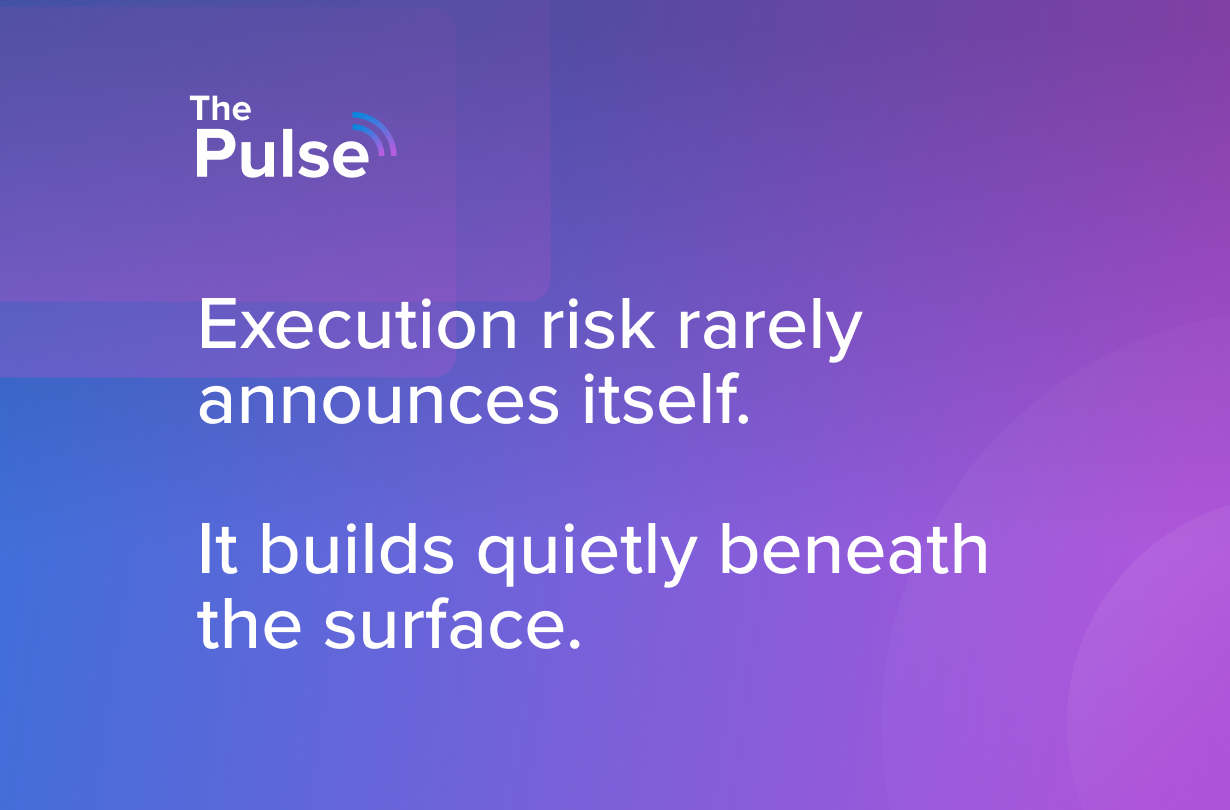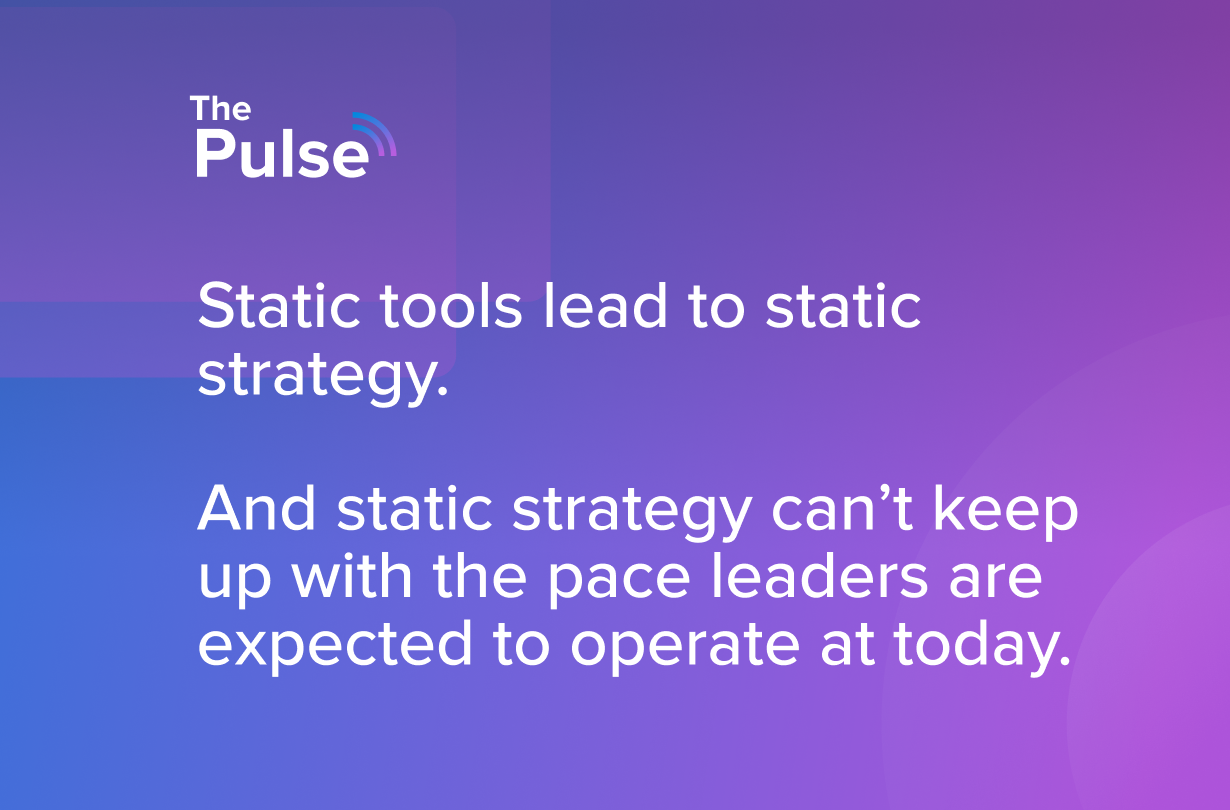
Strategic planning is a term that many business leaders have heard but do not completely understand. For many, it sounds like a term that should hold value but many leaders end up shrugging off. In fact, Harvard Business Review found that two-thirds to three-quarters of large organizations struggle with executing their strategic plans.
You might be wondering how strategic planning could be so important for businesses if so few leadership teams are actually dedicating time to it. In this blog, we will discuss why your business should improve strategic planning and how to do so. First, though, we will explore the strategic planning definition and examples.
What Is Strategic Planning?
Strategic planning is the process of evaluating what you know about your business to decide on specific, measurable, achievable, relevant, and timely (SMART) goals, OKRs (Objectives and Results), or another goal-setting framework to create practices throughout the business that will help achieve them. It focuses on the future of the business and driving growth.
A business should constantly alter its strategic plan based on what they observe happening internally and externally. In a study of Harvard Business School graduates who started their own business, 93% of those with successful strategies had changed their original strategic plan. Let’s look at an example of the strategic planning process and how to pivot away from original plans for further growth.
Let’s say that a software company has a three-year goal of consistently signing five more companies into contract when compared with their recorded average per month. To do so, they increase the number of ads online, hold more networking events, and send more employees to conferences. After a few months of analyzing the data, though, the leadership team notices that they have fairly consistently met their goal. However, they notice that the number of customers who add features onto their contract or who extend their contract hasn’t been high. Instead of focusing on the number of new customers they sign on, the leadership team might shift their strategic plan to increase the number of customers they retain.
Strategic planning is all about continual growth, not just checking accomplishments off a list based on key performance indicators (KPIs). Objectives and key results (OKRs) create a framework for setting measurable goals and achieving them. Sometimes changing plans is part of that process. It may seem counterproductive to change the goals your business has worked towards, but it may allow for more long-term success. Strategic planning software like Elate was created to help in that process by helping you communicate your new vision, create goals that align with them, and then track performance all in one place.
Importance of Strategic Planning
There are 3 key elements of strategic planning that make it so important: giving a clear vision to work towards, evaluating biases and flaws in reasoning, and tracking measurable goals. Let’s look at each a little more closely to get a better understanding.
Clear Vision
A strategic plan provides a business with a clear vision as to what their mission is, what it can provide to its customers, and why the work they do is so important. When a plan is clear, all parts and employees of a business work towards the goals set. According to research completed by Gallup, only 13% of a business’s employees, on average, strongly agree that their leadership teams effectively communicate with the rest of the organization. Less than half of U.S.employees even feel confident in knowing what their organization stands for. When this many employees don’t know what their company is working towards, the goals set within the strategic plan cannot be accomplished. Clear vision leads to clear communication and positive results.
Evaluating Biases
Biases arise from the brain’s desire to find patterns and shortcuts to process information faster. However, they can be detrimental to a business because they don’t allow for much variation from the business’s norms. Biases, for example, may put more value on recent events, may only value opinions and ideas that align with prior beliefs, and encourage sticking to the status quo. In short, biases allow for stagnation within a business. Strategic planning, though, allows for leaders with different ideas to bring those forward and discuss them so that a better mission and goals can be established.
Tracking Goals
While achieving goals is not the only reason for strategic planning, it is a major part of it. After all, goals are an easy way for a business to measure success. That is why tracking goals is so important. It allows business leaders to ensure that their strategic plan is working, whether changes need to be made and what those changes might be. From there, day-to-day decisions can be more easily made and the strategic plan more successful. Elate integrates with Customer Relationship Management (CRM) software to bring your data into the platform effortlessly so that you can better track your goals.
Strategic Planning with Elate
Creating a strategic plan is important for businesses, but it may be difficult to know where to start. Elate can help. Our software allows for OKR implementation, transferring your business objectives into your strategic plan, recommending strategies for your operations, and completing a dashboard migration. We even offer a playbook to help you create your strategic plan. To learn more about how Elate can help your business, request a demo here.


